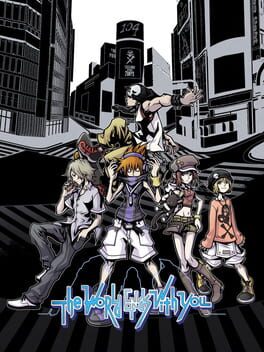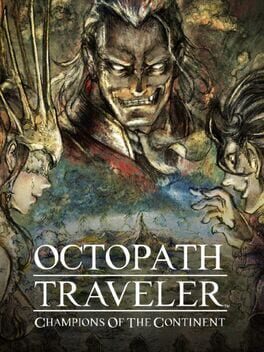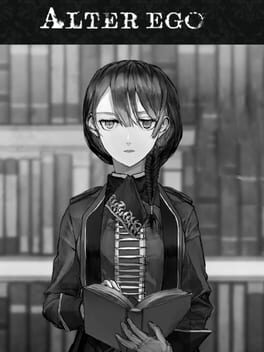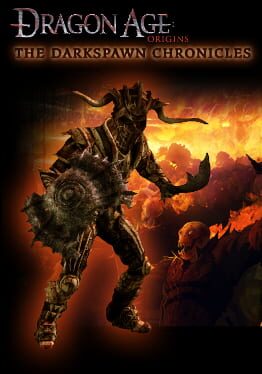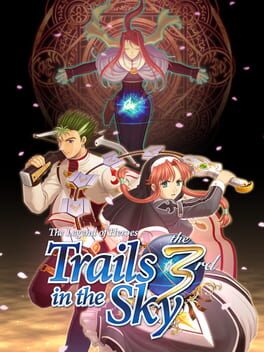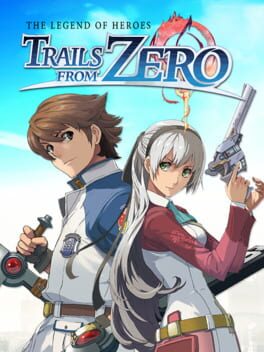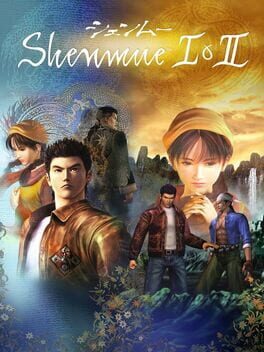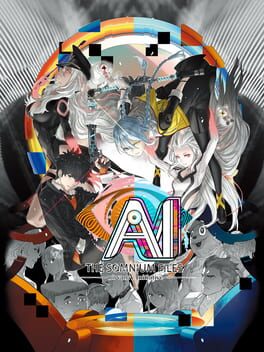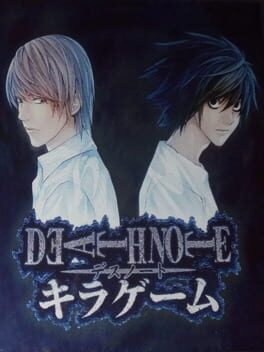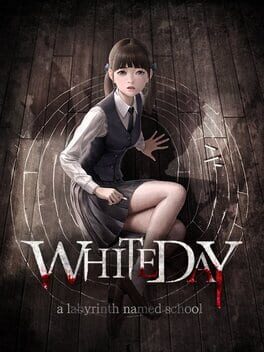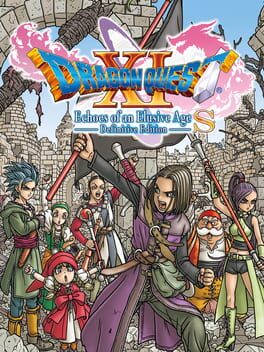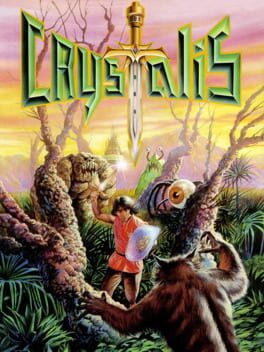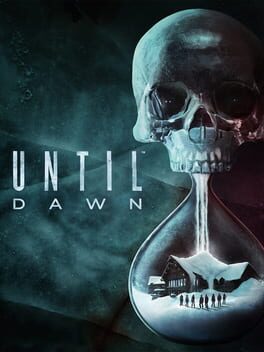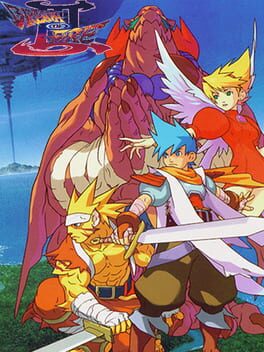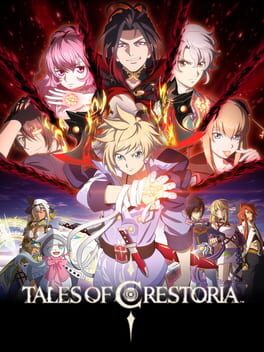Ramaladni
I am having a blast rediscovering the NDS system as a whole, and TWEWY is one of the games that makes fantastic use of the DS's capabilities as a hardware, making it stand out as more than just another handheld console.
it achieves this with the dual screen gameplay that isn't too distracting or demanding, and the creative usage of skills with different applications of your stylus. it's mechanically challenging but rewarding, and the gameplay is satisyfing even if it gets grindy. the real flaw here is that some skills don't mesh well and sometimes are even prejudicial as they clash with the usage of better-created and stronger skills.
in a non-deprecating way, this story has a quite pretentious/edgy beat that would've resonated with my 15 year old past self, but it takes that and spins it into something heartwarming and meaningful. we have our cynical misanthrope main character who closes himself off and erects barriers that do not allow others entry, but throw his trials and tribulations learns that The World Ends with Him, as in that it's only by interacting with others that your world can expand, as they allow you to be and find new versions of yourself.
shibuya is initially a fun city to explore, however as you keep playing the repetition of going through the same unmoving overworld turns it incredibly dull.
the ending feels like a bit inconclusive, like it could've developed more or delivered a stronger punch. all in all, it's a solid game, and some might say a must-play for the system.
it achieves this with the dual screen gameplay that isn't too distracting or demanding, and the creative usage of skills with different applications of your stylus. it's mechanically challenging but rewarding, and the gameplay is satisyfing even if it gets grindy. the real flaw here is that some skills don't mesh well and sometimes are even prejudicial as they clash with the usage of better-created and stronger skills.
in a non-deprecating way, this story has a quite pretentious/edgy beat that would've resonated with my 15 year old past self, but it takes that and spins it into something heartwarming and meaningful. we have our cynical misanthrope main character who closes himself off and erects barriers that do not allow others entry, but throw his trials and tribulations learns that The World Ends with Him, as in that it's only by interacting with others that your world can expand, as they allow you to be and find new versions of yourself.
shibuya is initially a fun city to explore, however as you keep playing the repetition of going through the same unmoving overworld turns it incredibly dull.
the ending feels like a bit inconclusive, like it could've developed more or delivered a stronger punch. all in all, it's a solid game, and some might say a must-play for the system.
2018
Zero turned out to be quite mid. SSS squad feels like budget bracers. Lloyd is a hetare Gary Stu protagonist who has the other squad members orbit around him. People will say this game had the advantage of a small group to focus on, but Sky's party members aside from the main duo had ambitions, goals and lives of their own. You can't really say that of Elie, Randy and Tio. Speaking of them, Elie really got shafted, being tacked on as a love interest as if that'd make her a more interesting character.
On the topic of characters, lots of them feel like carbon copies of beloved Trails in the Sky characters, like KeA and Renne, Tita and Tio, Cassius and Arios, Lechter/Randy and Olivier, and so on. With Arios, his backstory is even copied from Cassius's, but not as developed. He certainly does win worst dad of the year award, tho.
Certain tropes get repeated, like dramatically being saved last second when you're about to get owned (happens about 4 or 5 times during the game). At the end, the main questions aren't resolved and you're basically told "lol play the sequel."
Getting on spoiler territory, I didn't vibe at all with the last chapter throwing nothing but brainwashed, mind controlled enemies at you. It's a silly plot device that removes their agency, and is not fun to interact with. It feels low effort. The same plot device is thrown at main antagonist at the last second, as if to absolve their guilt. Where have I seen this before, hmm?
Joshua and Estelle show up again but as supporting characters. It feels pretty odd considering their power level by the end of Sky 3 would be nearly godlike. However, here they're almost like rookie bracers, fading to the backstage. Having them act as small-time helpers by the end of the game cheapens them and your efforts growing them across the first trilogy.
I have to admit, the scenes with Renne and getting to the root of her backstory was fantastic. I just wish they existed in a different scenario.
I completed this on Nightmare and did the "finish the game under level 40" challenge. It was quite fun to challenge myself and try different strats, even ones not even mentioned on top guides (for xp conservation). At the same time, it forced me to not interact with a big portion of the game by not allowing me to engage in optional battles, which is a bit lame.
I'll probably play the sequel. I'm sure there will be good payoff from having played Zero. I just won't jump into it so soon.
On the topic of characters, lots of them feel like carbon copies of beloved Trails in the Sky characters, like KeA and Renne, Tita and Tio, Cassius and Arios, Lechter/Randy and Olivier, and so on. With Arios, his backstory is even copied from Cassius's, but not as developed. He certainly does win worst dad of the year award, tho.
Certain tropes get repeated, like dramatically being saved last second when you're about to get owned (happens about 4 or 5 times during the game). At the end, the main questions aren't resolved and you're basically told "lol play the sequel."
Getting on spoiler territory, I didn't vibe at all with the last chapter throwing nothing but brainwashed, mind controlled enemies at you. It's a silly plot device that removes their agency, and is not fun to interact with. It feels low effort. The same plot device is thrown at main antagonist at the last second, as if to absolve their guilt. Where have I seen this before, hmm?
Joshua and Estelle show up again but as supporting characters. It feels pretty odd considering their power level by the end of Sky 3 would be nearly godlike. However, here they're almost like rookie bracers, fading to the backstage. Having them act as small-time helpers by the end of the game cheapens them and your efforts growing them across the first trilogy.
I have to admit, the scenes with Renne and getting to the root of her backstory was fantastic. I just wish they existed in a different scenario.
I completed this on Nightmare and did the "finish the game under level 40" challenge. It was quite fun to challenge myself and try different strats, even ones not even mentioned on top guides (for xp conservation). At the same time, it forced me to not interact with a big portion of the game by not allowing me to engage in optional battles, which is a bit lame.
I'll probably play the sequel. I'm sure there will be good payoff from having played Zero. I just won't jump into it so soon.
2018
While it manages to avoid some of the prequel's biggest mistakes (repetition, fruitfulness in investigation, and bad humor) and there's good gameplay improvements, it does not manage to scale up to the original game. It keeps ruining serious moments with silliness or idol song performances, it's hard to get attached to any of the protagonists, not as much as Date.
The game tries to be epic at the end with some hard to swallow "EPIC TWIST" asspull, and yet, once again, fails to reach the impact levels of the original game.
Nonetheless, there's the usual heartfelt moments that do feel genuine, and a message that we are only complete when we meet our better half.
The game tries to be epic at the end with some hard to swallow "EPIC TWIST" asspull, and yet, once again, fails to reach the impact levels of the original game.
Nonetheless, there's the usual heartfelt moments that do feel genuine, and a message that we are only complete when we meet our better half.
2007
1990
Glitched out the final boss fight — the boss was completely invulnerable, and I couldn't die either. I had no save for hours, so I would have to redo a lot. This is completely unacceptable. Maybe the JP NES version is bugged? Anyway, it sucks really hard to be locked out of the game when I was so close at the finishing line.
It's cool how talking to NPCs helps you move along and really incentivates exploring... but some clues are really darned obscure (inspect that ONE pixel in the river).
It's cool how talking to NPCs helps you move along and really incentivates exploring... but some clues are really darned obscure (inspect that ONE pixel in the river).
2015
1997
IN SUM: A JRPG with inflated ratings due to nostalgia rose-tinted glasses that fails to live up to the greatness of its predecessor Breath of Fire II. Please play BoF2 with the amazing fan translation instead!
BoF is known as CAPCOM's first meaningful JRPG franchise. It features very nice graphics, great music, and an anthropomorphic fantastic world. The storylines are sort of what you'd expect from a turn of the century JRPG: good vs evil, man vs god/machine, etc. Other common elements are a dragon humanoid protagonist, a female lead called Nina, and lead party members with specific overworld interactions for puzzle-solving.
BoF 2 was a big failure... but only due to sporting one of the most horrible official translations in existence. This was rectified with the very opposite: possible one of the best fan TLs I've had the pleasure of reading. Nonetheless, it made it so that the western audience had a bad impression of the game. I reason this rationale due BoF 3's status as the best of the franchise. After experiencing it, it's clearly not, but it's explained by the aforementioned barriers to entry.
This game is quick to disappoint. It has one of the most boring, redundant, and pointless early games ever. The first 15 hours have you wander aimlessly with similar events repeating, and very little worldbuilding, character building, or story hints. Most enemies are weak and all but boss battles are solvable by leaving the game on autobattle and stocking up on cheap but efficient healing items. This is a trend that remains throughout the whole game. It does not help that the animations are extremely slow with lots of redundancy, making the game an absolute slog without fast-forward. It also features some real stinkers for dungeons, but soon does the game shift its gears by introducing a story twist and segwaying into Act 2. I would argue, however, that no matter how good the individual scenes, a very tedious Act 1 heavily damages the subsequent acts.
Many of the disappointing points remained. Coming from BoF2, I was expecting the same intricate character-driven story arcs and emotional climaxes rivaling and at times surpassing those of behemoths such as Chrono Trigger. It's only near the end that the games does unravel itself and bring on the moments of character introspection. However, it's not helped by the fact that you don't have a strong affinity for these weakly developed characters, and that the game gives the player fake agency throughout, pretending you have a voice in the happenings.
Gameplay-wise, it features two big systems. First is the apprentice system, where you may leave a character under a master's tutelage. You get a trade-off of positive and negative stat growths and learn some skills in return. If you're careless, you could very well gimp your character and make them useless later on. If you just follow your intuition, you should be mostly fine. One of the best masters is met really early on, so it's hard to screw-up your MC. One of the best lategame ones could be permanently lost due to a simple "Do you like how I look'?" question. Coupled with this, with the usage of very restricted consumable items, you're able to switch master-learned skills around between your characters. So you could use some scrubs to gain skills quickly and transfer them to your powerhouses.
The other one is Dragon transformation. Ryu, the protagonist, has the ability to transform into a dragon. You can acquire crystallized genes from story rewards, or items in the overworld. With 18 choices and being able to combine them to up to groups of 3, there's dozens (hundreds) of different possible choices. It sounds pretty neat, but entering and maintaining this form costs a lot of AP (mana equivalent), so you'll only be using it during boss fights (which can be actually challenging). This actually means you'll be looking up the best choices, choosing cookie-cutter options, or picking the same ones as the situation fits due to overburden of choice. So this system can't be exploited to its fullest.
Since I mentioned translation previously, the game suffers from some issues as well. The dialogue is very weak and reminiscent of NES JRPGs with limited characters textboxes. It can even read contradictorily in the most important story moments, and I give the benefit of the doubt by attributing this due to being lost in translation.
The game has inflated ratings due to rose-tinted nostalgia. We have to keep in mind this was the same console that gave us games such as FF7 (and others), Xenogears, and Chrono Chross. The result was an above-average JRPG that fails to live up to the reputation of its predecessor, in big part due to unfortunate circumstances.
TLDR: Play BoF2 with the fanTL instead!
BoF is known as CAPCOM's first meaningful JRPG franchise. It features very nice graphics, great music, and an anthropomorphic fantastic world. The storylines are sort of what you'd expect from a turn of the century JRPG: good vs evil, man vs god/machine, etc. Other common elements are a dragon humanoid protagonist, a female lead called Nina, and lead party members with specific overworld interactions for puzzle-solving.
BoF 2 was a big failure... but only due to sporting one of the most horrible official translations in existence. This was rectified with the very opposite: possible one of the best fan TLs I've had the pleasure of reading. Nonetheless, it made it so that the western audience had a bad impression of the game. I reason this rationale due BoF 3's status as the best of the franchise. After experiencing it, it's clearly not, but it's explained by the aforementioned barriers to entry.
This game is quick to disappoint. It has one of the most boring, redundant, and pointless early games ever. The first 15 hours have you wander aimlessly with similar events repeating, and very little worldbuilding, character building, or story hints. Most enemies are weak and all but boss battles are solvable by leaving the game on autobattle and stocking up on cheap but efficient healing items. This is a trend that remains throughout the whole game. It does not help that the animations are extremely slow with lots of redundancy, making the game an absolute slog without fast-forward. It also features some real stinkers for dungeons, but soon does the game shift its gears by introducing a story twist and segwaying into Act 2. I would argue, however, that no matter how good the individual scenes, a very tedious Act 1 heavily damages the subsequent acts.
Many of the disappointing points remained. Coming from BoF2, I was expecting the same intricate character-driven story arcs and emotional climaxes rivaling and at times surpassing those of behemoths such as Chrono Trigger. It's only near the end that the games does unravel itself and bring on the moments of character introspection. However, it's not helped by the fact that you don't have a strong affinity for these weakly developed characters, and that the game gives the player fake agency throughout, pretending you have a voice in the happenings.
Gameplay-wise, it features two big systems. First is the apprentice system, where you may leave a character under a master's tutelage. You get a trade-off of positive and negative stat growths and learn some skills in return. If you're careless, you could very well gimp your character and make them useless later on. If you just follow your intuition, you should be mostly fine. One of the best masters is met really early on, so it's hard to screw-up your MC. One of the best lategame ones could be permanently lost due to a simple "Do you like how I look'?" question. Coupled with this, with the usage of very restricted consumable items, you're able to switch master-learned skills around between your characters. So you could use some scrubs to gain skills quickly and transfer them to your powerhouses.
The other one is Dragon transformation. Ryu, the protagonist, has the ability to transform into a dragon. You can acquire crystallized genes from story rewards, or items in the overworld. With 18 choices and being able to combine them to up to groups of 3, there's dozens (hundreds) of different possible choices. It sounds pretty neat, but entering and maintaining this form costs a lot of AP (mana equivalent), so you'll only be using it during boss fights (which can be actually challenging). This actually means you'll be looking up the best choices, choosing cookie-cutter options, or picking the same ones as the situation fits due to overburden of choice. So this system can't be exploited to its fullest.
Since I mentioned translation previously, the game suffers from some issues as well. The dialogue is very weak and reminiscent of NES JRPGs with limited characters textboxes. It can even read contradictorily in the most important story moments, and I give the benefit of the doubt by attributing this due to being lost in translation.
The game has inflated ratings due to rose-tinted nostalgia. We have to keep in mind this was the same console that gave us games such as FF7 (and others), Xenogears, and Chrono Chross. The result was an above-average JRPG that fails to live up to the reputation of its predecessor, in big part due to unfortunate circumstances.
TLDR: Play BoF2 with the fanTL instead!
2020
